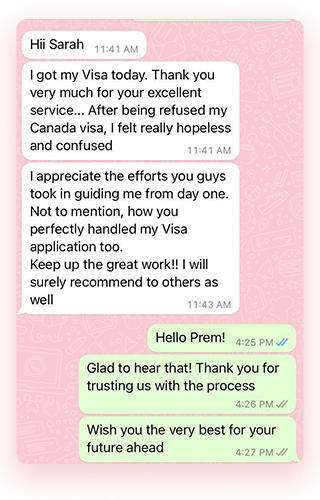Book a FREE Consultation with our Experts
Overview
Germany, known for its top-notch educational system and innovative attitude, has become a top choice for international students. Germany has a wide choice of degrees, especially in engineering, technology, business, and medical, with a strong emphasis on academic rigor and hands-on learning. Since many public institutions offer low-cost or free education, it’s a very inexpensive choice for students all around the world.
A dynamic learning environment is created by the nation’s strong economy, state-of-the-art research facilities, and rich cultural history. In order to give students practical experience and a competitive edge in the job market, Germany also provides internship opportunities and partnerships with international enterprises. English-taught programs with a strong emphasis on innovation guarantee that students are ready for jobs around the world.
Supportive visa regulations, post-study employment options, and exposure to a diversified society are all advantages for international students studying in Germany.
Key Facts to consider to Study in Germany
Admission Intakes
Summer (Mar / Apr)
Winter (Sep / Oct)
Average Tuition Fee
Public Universities: Free
Private Universities:
Bachelor’s : €10,000 to €15,000 per year
Master’s: €10,000 to €20,000 per year
Living Expenses
€12,000 to €15,000 per year
Post Study Work Permit
Bachelor’s : 18 months
Master’s : 18 months
Accepted Tests
IELTS, GRE, GMAT
Top Cities
Munich, Frankfurt, Berlin, Hamburg
Top Universities to Study in Germany
Here are some of the most prestigious German universities for international students:
University Name | Global Ranking | Popular Programs |
| Technical University of Munich (TUM) | 33 | Engineering, Computer Science |
| Ludwig Maximilian University (LMU) | 64 | Medicine, Natural Sciences |
| Heidelberg University | 43 | Medicine, Humanities |
| RWTH Aachen University | 147 | Engineering, Robotics |
| Humboldt University of Berlin | 74 | Social Sciences, Physics |
Cost of Studying in Germany
One of the main attractions of studying in Germany is its affordability. Below is a cost breakdown:
Expense | Cost (INR) | Cost (EUR) |
Tuition Fees (per year) | Free or up to 2,00,000 | Free or up to 2,500 |
Accommodation (per month) | 20,000 – 35,000 | 250 – 450 |
Living Expenses (per month) | 50,000 – 65,000 | 600 – 850 |
Health Insurance (per month) | 6,000 – 8,000 | 80 – 110 |
Miscellaneous Expenses | 10,000 – 15,000 | 120 – 200 |
Advantages of Studying in Germany
German higher institutions attract many international students because of the numerous advantages it offers. Here are some of the key advantages of studying in Germany
High-Quality Education
Germany has a good reputation as far as education is concerned as many of the country’s universities frequently make it in the top rankings across the world. Research-based focus and practice oriented education ensures better learning outcomes.
Affordable or Free Tuition
German public universities normally charge low or no tuition fee thus making education affordable to international students. This greatly minimizes the expenditure that goes towards foreign education.
Strong Job Market
The German economy is characteristically strong and flexible when it comes to the supply of jobs, especially those related to science, technology, and engineering. Internship possibilities as well as post-graduate job opportunities are available for international students.
Post-Study Work Opportunities
After completion of their studies in Germany, graduates can stay in the country for a maximum period of 18 months to seek employment pertaining to their fields. The study after work is actually very beneficial for all job seekers in Germany.
Research Opportunities
Germany has a strong research and innovation culture that makes it a world power. It gives international students an opportunity to take part in current research, and interact with global scholars in specific disciplines.
Cultural Diversity
The country of Germany has a vast cultural background, making international students feel at home. In this case, such exposure to other cultures improves the learning process as a whole.
Collectively, these advantages make Germany a good place of choice whereby students are looking for quality education with rich cultural experiences after graduation.
Student Visa Requirements for Germany
To study in Germany, you’ll need a German Student Visa. Below are the key requirements:
University Admission Letter:
Confirmation from a recognized German university.
Proof of Financial Resources:
Transcripts, degree certificates, and any other relevant academic records required by the university and visa authorities.
English or German Language Proficiency:
IELTS/TOEFL or TestDaF/DSH scores as applicable.
Health Insurance
Mandatory coverage for all international students.
Valid Passport and Photographs
A passport with sufficient validity and recent biometric passport-sized photographs.
Academic Documents
Transcripts, degree certificates, and any other relevant academic records required by the university and visa authorities.

How to Apply for a Student Visa
Applying for a student visa involves several steps that vary by country, but the general process is outlined below:
Check Visa Requirements
Verify if a student visa is required for your chosen destination.
Visit the embassy or consulate website of your destination country for official guidelines.
Gather Required Documents
University Admission Letter
Proof of Financial Resources
Language Proficiency Test Scores
Valid Passport and Photographs
Health Insurance
Academic Records
Complete the Visa Application Form
Fill out the form online or download it from the embassy website.
Pay the Visa Fee
Submit the required application fee and retain the receipt.
Schedule an Appointment
Book a date for the visa interview or document submission.
Attend the Visa Interview
Bring all required documents and be prepared to discuss your study plans.
Wait for Visa Approval
Monitor your application status while processing is underway.
Collect Your Visa
Once approved, collect your visa from the embassy or consulate.
Review the visa details for accuracy (name, dates, etc.).
Plan Your Travel
Book your flight and prepare to comply with any additional entry requirements, such as COVID-19 protocols.




Post Study Work Opportunities
Germany offers post-study work opportunities for international students through the "Job Seeker Visa" and the "Residence Permit for Job Search." Here's a general overview of the post-study work options in Germany for different academic programs
- Bachelor's Degree: 18 Months
- Master's Degree: 18 Months
- Ph.D. Programs: 36 Months



FAQs
IELTS (International English Language Testing System): Many universities accept a score of 6.0 to 7.0 or higher. TOEFL (Test of English as a Foreign Language): A score of 80 to 100 or higher is often required.
Most countries allow international students to work for up to 20 hours a week per semester, during academic period. International students can work unlimited hours in Germany during vacation periods (semesterferien).
The German education system is reputable for its advanced learning and research standards. Its universities are always ranked among the best in the world, and they offer varied programs, industrial links, and favorable conditions for research, creativity, and innovation.
The cost of living in Germany for international students differs from one city to another, with regard to the style of life that one upholds and their own expenditures. Regarding these additional costs, a student can typically budget between 800 and 1,000 euro per month which covers accommodations, meals, transportations, the health insurance, and others. In some cities such as Berlin and Munich, living costs could be higher than in small villages.
Upon completion of studies, one can opt to go for a post-study work visa popularly known as, ‘Aufenthaltserlaubnis zur Arbeitsplatzsuche’ or ‘Job Seeker Visa’. This is a visa that permits an individual to remain in.
Explore Study Abroad Opportunities with Admit Mentors
| Destination | Description |
| Study in Australia | Unlock top-notch education opportunities in Australia. |
| Study in the UK | Experience world-class universities in the UK. |
| Study in the USA | Achieve academic excellence in the United States. |
| Study in Canada | Explore education options in Canada’s diverse environment. |
| Study in Ireland | Pursue higher education in Ireland’s renowned institutions. |
| Study in Germany | Discover affordable, quality education in Germany. |
| Study in France | Study amidst France’s rich culture and history. |
| Study in New Zealand | Gain top-tier education in New Zealand. |
| Study in Italy | Immerse in Italy’s world-class universities and heritage. |
| Study in Netherlands | Explore innovative education options in the Netherlands. |
| Study in Dubai | Experience global education in Dubai’s vibrant setting. |
| Study in Sweden | Embrace sustainability and innovation in Sweden’s education system. |
| Study in Denmark | Benefit from Denmark’s high-quality educational programs. |
| Study in Finland | Pursue unique study programs in Finland’s serene environment. |
| Study in Malta | Study in Malta’s picturesque and peaceful setting. |
Success Stories and Reviews









